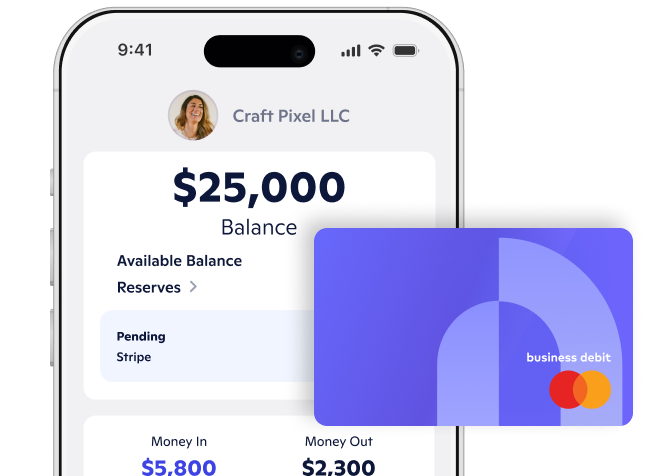
s a small business owner, it can be intimidating to navigate quarterly estimated taxes. There are several regulations and rules that small business owners and freelancers alike must adhere to in order not to be penalized. Making simple mistakes like miscalculating your estimated payments or making late payments can cost you in the long run. That’s why it is necessary to ensure that you understand your state’s tax laws and regulations. Here’s everything you need to know about Virginia's estimated tax laws as a business owner.
What are estimated taxes?
Estimated Taxes are the taxes you are expected to owe for the current tax year that you pay every quarter.
Essentially, you must pay taxes on your income as you earn it. When employed by someone else, you avoid making estimated tax payments because your employer withholds your taxes. Those who are self-employed or receive income from other means, such as dividends and earnings from stock, are required to handle regular tax payments themselves.
Does Virginia require estimated tax payments?
According to Virginia tax law, you must make estimated tax payments or have additional income tax withheld if you are required to file a tax return, and if your Virginia tax liability is expected to be more than $150 after subtracting income tax withheld and any allowable credits.
Who has to pay estimated taxes?
Most business owners must pay estimated taxes. As a business owner, you are required to pay Virginia estimated taxes if:
- You are a resident of Virginia, a part-year resident, or a nonresident
- You are required to file a federal income tax return
- You have Virginia adjusted gross income equal to or greater than the amounts below:
- Single or married filing separately with an income threshold of $11,950
- Married filing jointly with an income threshold of $23,900.
On the other hand, you are not required to file if you do not owe any taxes and will not receive a refund. Keep in mind that if you are just starting your business and are not generating any income yet, you will not be required to pay an estimated tax until there is income.
How to calculate estimated tax payments in Virginia
Calculating your estimated tax payments can be difficult, especially if this is your first time paying estimated taxes as a freelancer or business owner. The most important thing to know is that you must estimate how much money you intend to earn in a calendar year and then deduct all relevant deductions and tax credits. What is left is the value of your taxable income, allowing you to determine the amount of tax that will be due over the course of the year.
According to the Virginia Department of Taxation, you must pay at least 90 percent of your tax liability during the year by having individual income tax withheld and making prompt payments of estimated tax. There is a tax form available to aid in determining your estimated tax liability and how many payments you need to make that is located electronically through your individual online services account. Simply log in and select “Make an Estimated Payment” to access this worksheet.
Estimated tax payment due dates in 2022 and 2023
Virginia estimated tax payments are due in four quarterly amounts. The following four filing deadlines apply to every Virginia resident that is required to pay estimated taxes:
- 1st Quarter (January 1 to March 31): Due May 1
- 2nd Quarter (April 1 to May 31): Due June 15
- 3rd Quarter (June 1 to August 31): Due September 15
- 4th Quarter (September 1 to December 31): Due January 15, 2023 (following year)
How to make estimated tax payments?
The state of Virginia offers a variety of different payment options to pay your estimated taxes. These include the following:
- Online through your individual services account, which will require you to have a copy of your most recently filed Virginia tax return if you are not already enrolled
- 760ES eform, the Virginia Estimated Tax Payment Voucher
- ACH credit. You can make payments by ACH credit and initiate sending payments from your bank account to Virginia Tax’s bank account. Reference Virginia’s Electronic Payment Guide for specific details on requirements and set-up instructions with financial institutions.
- By mail using check or money order to:
Virginia Department of Taxation
P.O. Box 1478
Richmond, Virginia 23218-1478
Electronic filing is mandatory if the following applies:
- Any installment payment estimated tax exceeds $1,500
- Any payment made for an extension of time to file exceeds $1,500
- The total income tax liability for the year exceeds $6,000
How do you file for changes in income in Virginia?
If you predict that your Virginia adjusted gross income will change during the year, you must reevaluate your estimated tax to determine the increase or decrease of your remaining payments. Suppose you file your state income tax return and pay the balance of tax due in full by March 1. In that case, you are not required to make the estimated tax payment initially due on Jan. 15. If you file your return after March 1 without making the January payment, or if you have not paid the correct amount of estimated tax on any earlier due date, you may be penalized for underpayment of estimated tax.
What is the Penalty for not paying Virginia estimated tax?
Failure to pay your estimated taxes will result in an underpayment penalty. This penalty occurs if you do not pay at least 90 percent of your total tax liability on time or your quarterly estimated tax payments.
Are there exceptions and waivers for underpayment penalties?
There are exceptions, special circumstances, and ways you can get a penalty waived. You may be eligible if each required installment is paid on time and meets one of the following exceptions:
- Is at least 90% of the amount due based on annualized income
- Is at least 90% of the amount due based on the actual taxable income;
- Is based on a tax computed by using your income for the preceding taxable year and the current year's tax rates and exemptions;
- Is equal to or exceeds the prior year's tax liability for each installment period, and the previous year's return was for an entire year and reflected an income tax liability; or
- The sum of all installment underpayments for the taxable year is $150 or less.
Suppose you do not qualify for an exception. In that case, your underpayment computation will be based on 90% of the current year's income tax liability or 100% of your previous year's liability, whichever is less. You can calculate the addition to tax on Form 760C.
How Novo can simplify estimated taxes for small business owners
Novo serves to simplify how you manage your business, especially when it comes to financial tasks. There are many benefits to opening a business checking account with Novo that will not only significantly aid in keeping track of your business funds but especially help you prepare for making estimated tax payments. The following are just a few of Novo’s interfaces that help small business owners and entrepreneurs:
Novo checking account: It’s essential to separate your business finances from your personal finances for a smoother tax season. With a Novo checking account, you can put all your business expenses on your business debit card. Your business income will be paid to your business checking account, at which point you can pay yourself. You can also make an ACH payment or mail a check to the IRS straight from the app with no fees.
Novo Reserves: Automatically set aside money for tax season, so you’re not searching for money at the last minute to cover your tax payments. With our Reserves feature, you can set up an automatic transfer into your tax Reserve each time you get paid to allocate money towards tax time.
Automatic expense categorization: To make your bookkeeping tasks more manageable, Novo’s automatic expense categorization feature helps you organize your business expenses to identify what to deduct faster. You’ll see exactly how much was spent on different categories such as transportation or food.
The Takeaway
Calculating and paying your estimated taxes can seem like a pain when doing it as an individual business owner. However, there are always ways to combat the stress and maintain your organization. Make sure you correctly understand how to calculate your estimated taxes. You must always pay at least 90% of your last year’s tax liability. Remember that you can make payments early. Finally, take advantage of calendar reminders to keep you on track. It is never wrong to ask for help and consult with your lawyer, a tax professional such as a CPA, to ensure you are doing the right thing at tax time.

This page is for informational purposes only and is not intended to be relied upon as legal, financial, or accounting advice. Please consult your own professional if you have any questions.






